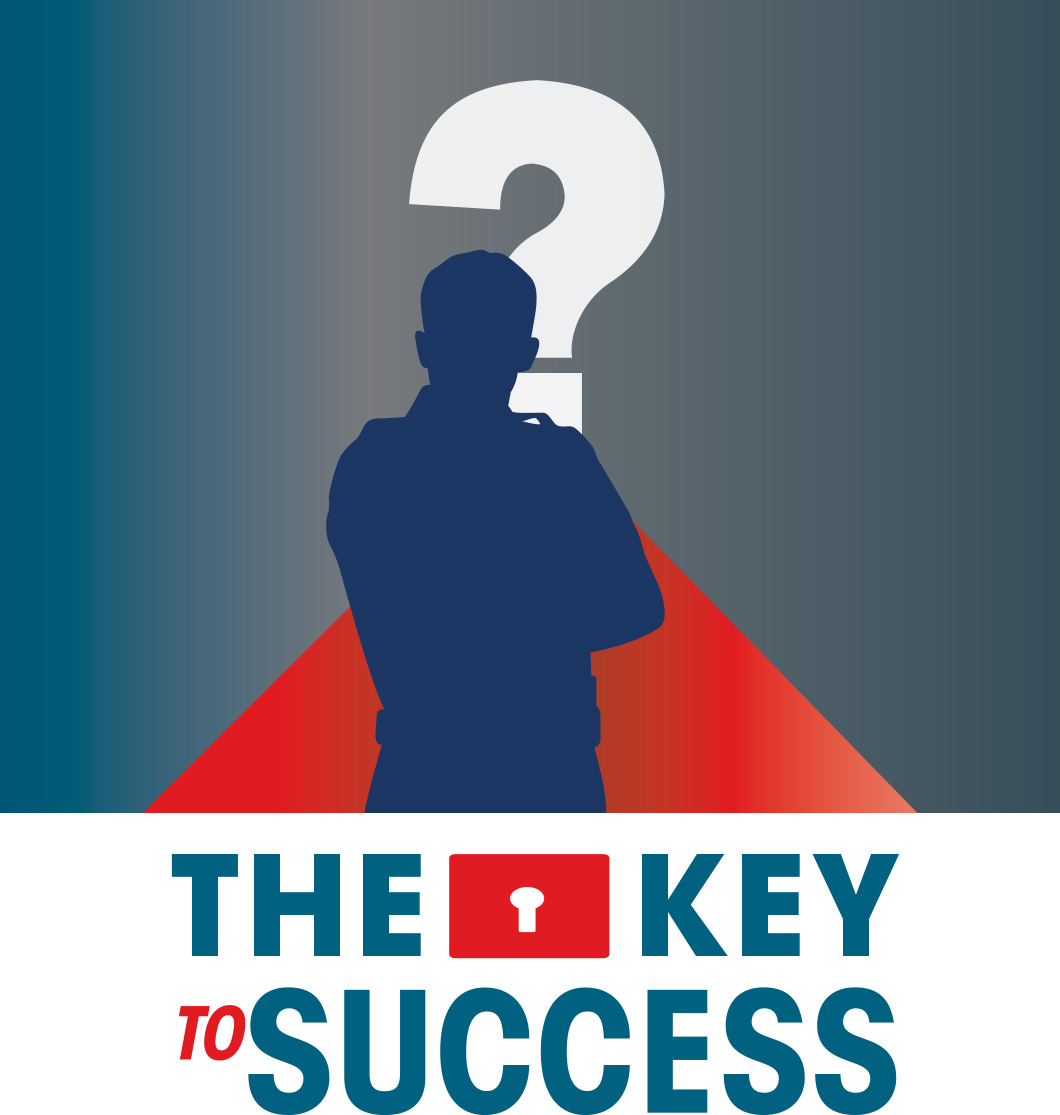
Good Days or Bad, Officers Must Always Show Compassion
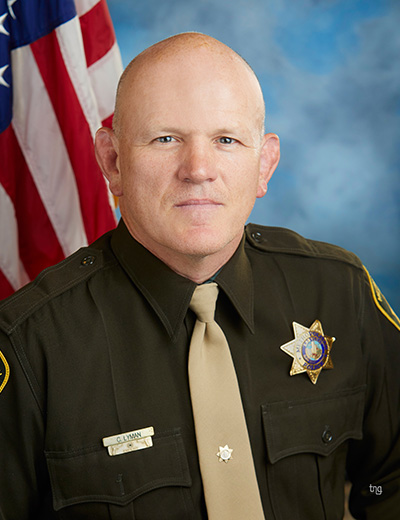
LVPPA Director
In the late 1990s, I was a rookie cop in Portland, Oregon, working for the Portland Police Bureau (PPB). I had graduated field training, and I was in my first assignment in a precinct, the North East Area Command (NEAC), on MLK Jr. Boulevard and Killingsworth Street. I would serve the rest of my career with PPB working with amazing cops in NEAC until I resigned and took a position in Vegas with the Las Vegas Metropolitan Police Department in 2004. I loved my fellow officers in Portland and learned many foundational lessons that still serve me today, 20 years later.
An experience early in my PPB career was such a lesson. Officers who served on the PPB SWAT team also served part-time in patrol, gangs or other assignments. I was a new officer just out of field training working in NEAC, and my sergeant was Sergeant Wooten (also a SWAT sergeant), and one of our senior officers was SWAT Officer Mike Stradley, who we called Strad. Strad was in shape, he was a family man and he was extremely competent tactically and physically. He was someone we all looked forward to and wanted to emulate. Sergeant Wooten was a great leader and wanted good men to lead us and teach us. He asked Strad to share with us the single most important piece of advice he could regarding being successful in our policing career. I looked up to Sergeant Wooten, Strad and the other members of the team, so I actually pulled out my notepad to take notes. I expected a “tactical gem.” I expected to hear the key to clearing a room, winning a gunfight or dealing with multiple adversaries. What I discovered is, hopefully, I already possessed the key, and Strad just didn’t want me to lose it.
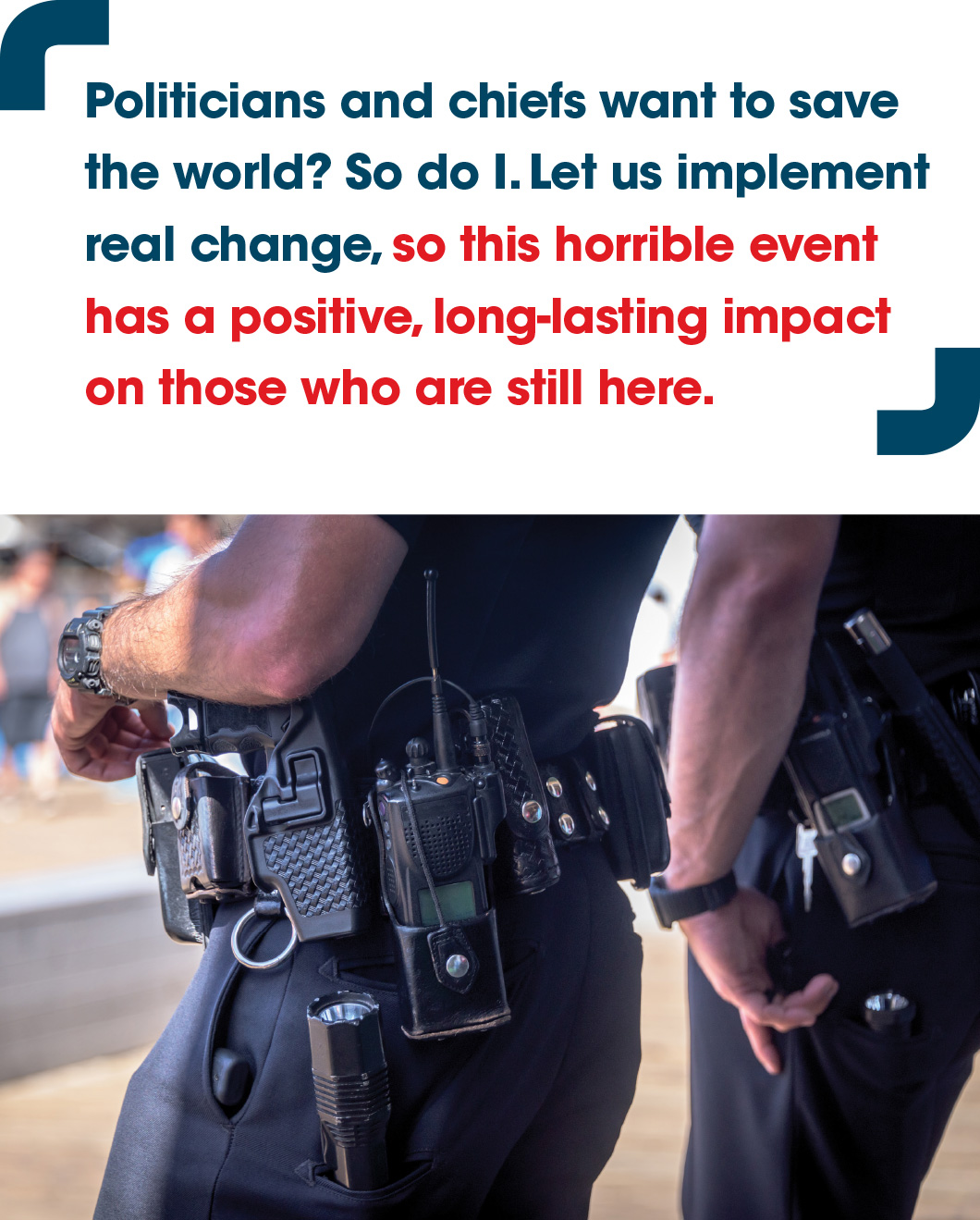 What does a warrior servant consider the key to being an effective police officer? Stradley warned us never to lose our compassion for others. He told us we would deal with good people doing bad things, and we would deal with bad people doing bad things. No matter what the bad guy did, no matter what we thought of him, it was important to maintain compassion for him. Strad told us to practice kindness — even with suspects — and once the suspect is in custody, it is over. Occasionally, suspects will still fight even after being cuffed, so Strad explained that if you lose your compassion for other people because of the job, you have lost to the job. He explained to us that officers who lose compassion for other people often get burned out; they frequently struggle in personal relationships, make mistakes on the job and may ultimately become suicidal. Strad taught us that losing compassion for others could cost us our basic happiness, career and marriage. All of this was based on how we treated others, even those who are hostile or criminal.
What does a warrior servant consider the key to being an effective police officer? Stradley warned us never to lose our compassion for others. He told us we would deal with good people doing bad things, and we would deal with bad people doing bad things. No matter what the bad guy did, no matter what we thought of him, it was important to maintain compassion for him. Strad told us to practice kindness — even with suspects — and once the suspect is in custody, it is over. Occasionally, suspects will still fight even after being cuffed, so Strad explained that if you lose your compassion for other people because of the job, you have lost to the job. He explained to us that officers who lose compassion for other people often get burned out; they frequently struggle in personal relationships, make mistakes on the job and may ultimately become suicidal. Strad taught us that losing compassion for others could cost us our basic happiness, career and marriage. All of this was based on how we treated others, even those who are hostile or criminal.
I was surprised I already had the key to being successful, and was ignorant of the fact the job could strip it away.
The world is on fire. The amount of hatred, anger and discord nationwide, all at the same time, is like no other time I have seen. Many say it has been building to this for years, and some of that is true. But the specific catalyst, the jump-off point for this unrest, is approximately eight minutes and 46 seconds of video of a Minneapolis, Minnesota, police officer choosing to kneel on the neck of George Floyd. Floyd was under arrest, handcuffed, prone, complaining that he couldn’t breathe, and was afraid he was dying. The legal fight over the video and events is just beginning. What happened, or what didn’t happen? Was it a trained or untrained technique? Was race a factor? What was the cause and manner of death, and who is responsible for what? As hard as the video is to watch, when we talk about a murder charge, I know some of the legal complexities of proving such a charge. I hope and pray that the prosecutors charge ultimately based upon the evidence (what degree of murder, other applicable charges, etc.) and what they can prove in court, and that the court case will reach the appropriate conclusion. I don’t have enough information to know what that should be, so I will not speculate. What was apparent to me is that the officer on the screen did not exhibit the key to success that I learned so long ago as a new officer with the PPB. I don’t know Officer Derek Chauvin as a person, but the eight minutes of a lack of compassion for another human being was appalling to all who watched that video. If Officer Chauvin ever had compassion, he has lost it in the last 19 years, and did not exhibit it on this call. Compassion (or a lack thereof) can change the world.
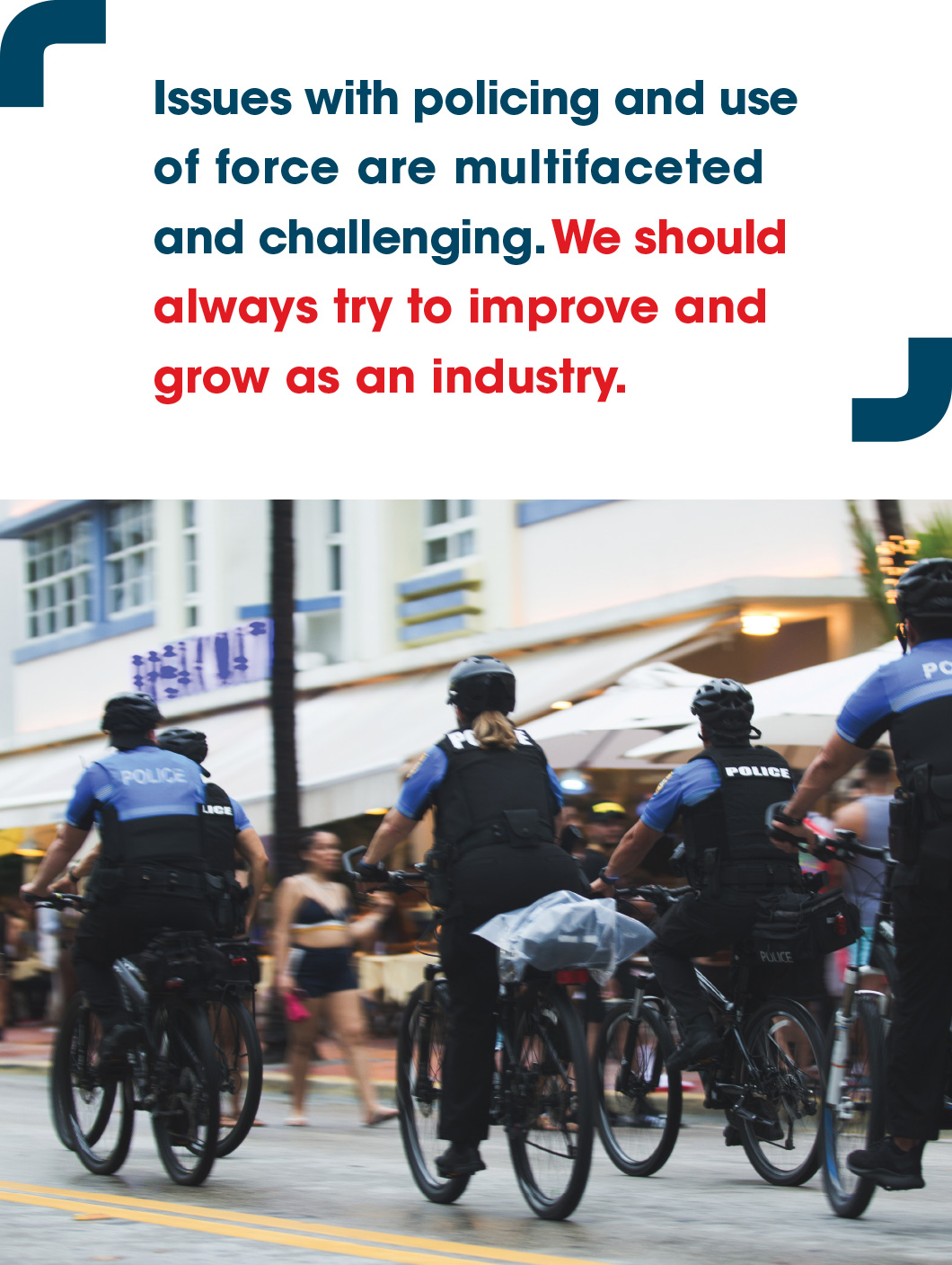 The irony of this situation is that this eight-minute video was immediately condemned by all who saw it. Both police officers and civilians alike were shocked and talked out against the video, almost unanimously calling for a murder charge for all four officers involved. As stated above, I do not have the specific knowledge of the case to speak to an appropriate charge. Many complaints about use of force predate this event, but this event was an opportunity for all to unite and use this as a starting point. Just based on the video, officers who watched it called for the officers to be fired and charged. The anger produced over the lack of compassion overcame the opportunity to unite and address this event in a unified manner, as law enforcement and civilians. As a result of the national anger, there have been nationwide protests revolving around police uses of force. Many of the protests have turned into riots, where murders, batteries with vehicles, weapons and hands, looting, setting things on fire, and extensive graffiti have been the result. Although the controversy of police use of force has been going for years, this eight-minute lack of compassion fueled this explosion. Whether I agree with it, whether I am to blame or whether I even had anything to do with it, does not matter. What does matter is what we do next and how we move forward. I will continue to maintain and practice compassion as I always have and will seek out others who exhibit the same.
The irony of this situation is that this eight-minute video was immediately condemned by all who saw it. Both police officers and civilians alike were shocked and talked out against the video, almost unanimously calling for a murder charge for all four officers involved. As stated above, I do not have the specific knowledge of the case to speak to an appropriate charge. Many complaints about use of force predate this event, but this event was an opportunity for all to unite and use this as a starting point. Just based on the video, officers who watched it called for the officers to be fired and charged. The anger produced over the lack of compassion overcame the opportunity to unite and address this event in a unified manner, as law enforcement and civilians. As a result of the national anger, there have been nationwide protests revolving around police uses of force. Many of the protests have turned into riots, where murders, batteries with vehicles, weapons and hands, looting, setting things on fire, and extensive graffiti have been the result. Although the controversy of police use of force has been going for years, this eight-minute lack of compassion fueled this explosion. Whether I agree with it, whether I am to blame or whether I even had anything to do with it, does not matter. What does matter is what we do next and how we move forward. I will continue to maintain and practice compassion as I always have and will seek out others who exhibit the same.
I have no problem with accountability in our profession. I have taught officers for years our job is where discipline can be about accountability or character. As our profession deals with the current challenges facing us, leadership will be key. During this time, LVMPD officers have worked long hours, been exposed to hostile protesters and been accused of racism and police misconduct P# 15490. Some officers have been battered and injured, we had an officer shot who is struggling for his life and we witnessed another suspect with multiple firearms and body armor who attempted to ambush and murder police officers. Our officers are standing up to threats daily. As they navigate through these uncertain times, they could use solid leadership from those who know the truth about them. The same officers who went code to confront the murderers of Igor Soldo and Alyn Beck work for this agency and went in harm’s way to stop the killers. The same officers who went to confront a shooter on October 1. Officers who every day go on “routine” calls or stops that instantly turn into lethal engagements. Officers who embody the spirit of police men and who ran to their deaths in the twin towers. We have walls of our own to memorialize those we have lost. As we navigate the current unrest, we need leadership that is courageous as the troops go in harm’s way daily. Some local leaders have done well, and some have struggled.
Recently, Deputy Chief McGrath granted what appears to be an impromptu interview with some protesters. This was a great opportunity to decry the sickening lack of humanity and compassion and care for George Floyd. This was a great opportunity to unite the LVMPD in the very cause of the protestors. A unique chance to talk about the reform and level of training we employ here at LVMPD. To explain that he doesn’t know a single cop who has defended the actions of the officers in Minneapolis as they used unlawful force on a handcuffed suspect who was begging for relief. The fact that our officers are trained to provide medically for suspects in our care. A chance to possibly de-escalate the danger to our line officers who were under attack daily, to include the shooting of Officer Shay Mikalonis and the attempted ambush of other officers. I don’t believe Chief McGrath was purposely slighting our officers who have been injured, but he did choose instead to blame police unions and suggested officers should not receive representation in these cases.
The chief stated that unions got “bad cops” their jobs back through arbitration, and arbitrators should not be involved at all because “they are not cops.” He stated if “the police” say you can’t be the police, you shouldn’t be allowed back. Interesting thoughts with several issues.
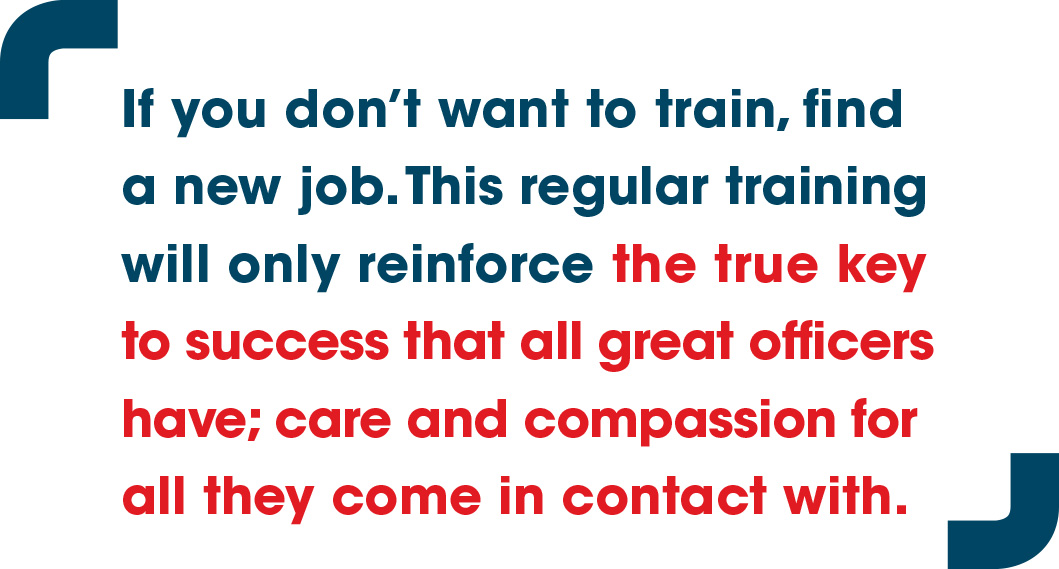 First, I haven’t seen any evidence that the opinion Chief McGrath laid out even pertains to the eight-plus minutes captured on video. Secondly, “the police” often don’t feel the officer needs to be fired, just command staff. Command staff with lots of influence from labor and legal departments of the LVMPD. Ironically, the staff of those units are civilians, just like the arbitrators that Chief McGrath decries in his interview. Shoot, under Chief McGrath’s rational, the protesters themselves (civilians) shouldn’t be able to judge police officers either, good or bad, as they are not cops. If I thought like Chief McGrath, if the police say a civilian committed a crime, that must mean they did it. No need for a defense attorney or representation, or even a group of civilians (lawyers or judges) to get involved and challenge “the police.” Obviously, I do not believe that, and I think if he reflected on his comments, Chief McGrath does not believe it either. Do officers have less rights than civilians? Should they not have a right to representation? He knows arbitrators often pick the department’s side, and when they don’t, it just might mean “the police” were wrong. No matter how he truly feels, I can say without question that the officers who go in harm’s way in this city, who are over 90% all members of the PPA, are looking for some validation that they routinely demonstrate compassion and care in their service to this city. LVMPD has implemented police reform consistently through both policy and training. The PPA and its members call on Chief McGrath and Nevada politicians to not throw our members or our association under a bus they are not even on. So, what are the answers to the problems of police use of force?
First, I haven’t seen any evidence that the opinion Chief McGrath laid out even pertains to the eight-plus minutes captured on video. Secondly, “the police” often don’t feel the officer needs to be fired, just command staff. Command staff with lots of influence from labor and legal departments of the LVMPD. Ironically, the staff of those units are civilians, just like the arbitrators that Chief McGrath decries in his interview. Shoot, under Chief McGrath’s rational, the protesters themselves (civilians) shouldn’t be able to judge police officers either, good or bad, as they are not cops. If I thought like Chief McGrath, if the police say a civilian committed a crime, that must mean they did it. No need for a defense attorney or representation, or even a group of civilians (lawyers or judges) to get involved and challenge “the police.” Obviously, I do not believe that, and I think if he reflected on his comments, Chief McGrath does not believe it either. Do officers have less rights than civilians? Should they not have a right to representation? He knows arbitrators often pick the department’s side, and when they don’t, it just might mean “the police” were wrong. No matter how he truly feels, I can say without question that the officers who go in harm’s way in this city, who are over 90% all members of the PPA, are looking for some validation that they routinely demonstrate compassion and care in their service to this city. LVMPD has implemented police reform consistently through both policy and training. The PPA and its members call on Chief McGrath and Nevada politicians to not throw our members or our association under a bus they are not even on. So, what are the answers to the problems of police use of force?
Issues with policing and use of force are multifaceted and challenging. We should always try to improve and grow as an industry. Ironically, highly trained individuals often retain the very key to success that this article is centered on, which is compassion for others. There are a lot of police reform ideas floating around. I will offer one that allows officers to maintain compassion for others.
Physical hands-on training on a regular basis creates care, concern and compassion for others. I mean consistent, ongoing training every single week. At work and on duty. The events that civilians are angry about all revolve around hands-on custody situations and shootings. I have always encouraged officers to train on their own, and I still believe that they should. However, I am done giving departments a break and saying, “they don’t have time to train the officers.”
Make the time. Every week, every officer should receive a four-hour block that can consist of DT, de-escalation, use of force, communication, combatives, arrest and control, empty hands and weapons, tactics, sims, and firearms. Individual and team tactics should be trained. Revamp POST requirements and provide comprehensive ongoing training. Officers should be boxing, wrestling and doing Brazilian jiu-jitsu at work as part of their workweek, every week.
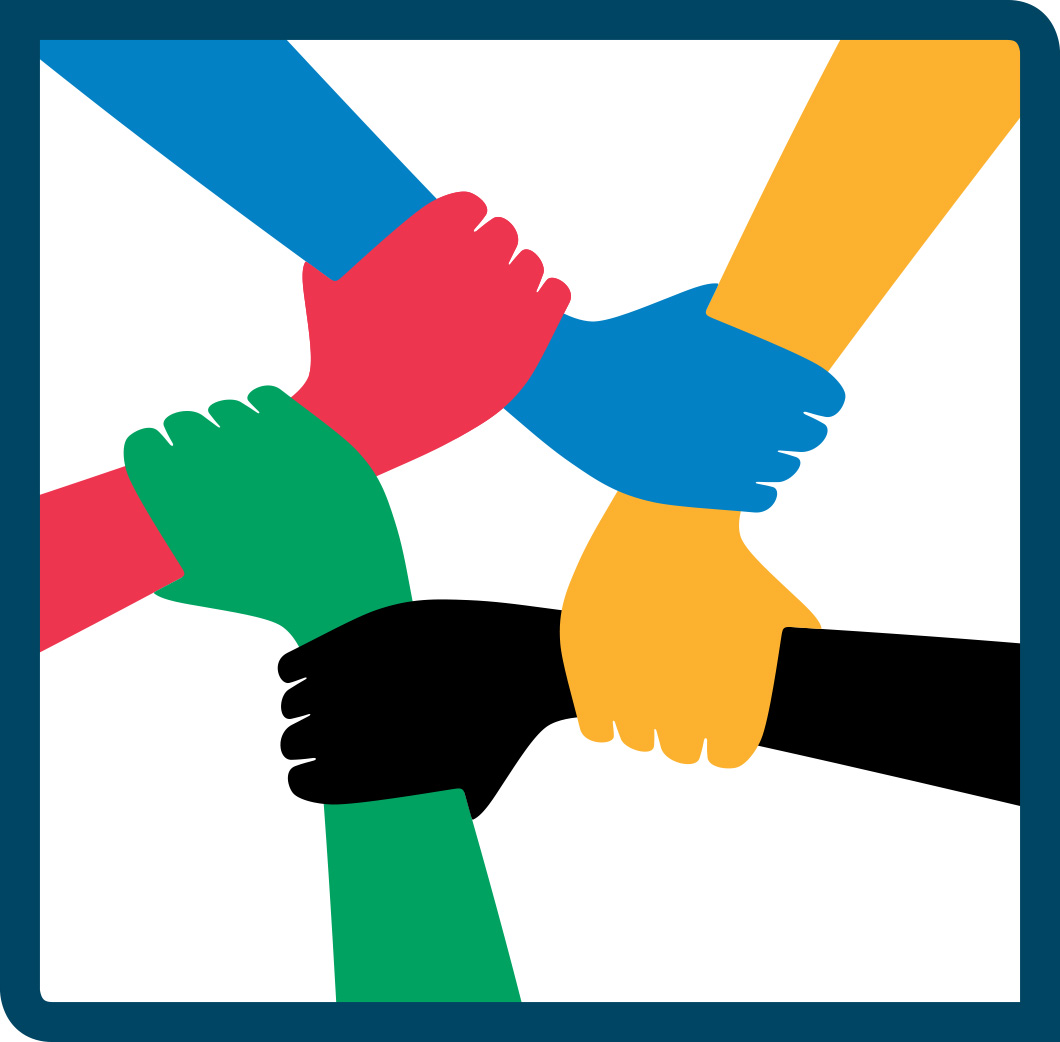 Officers who train in a mixed martial arts manner consistently, over time, are in better shape and are more physically capable. If you train combatives together with others on a regular basis, you have to learn how to have control, care and concern for one another, or everyone would be hurt constantly. When you feel what it is like to be hit, taken down, held down, and be subject to control holds, pressure and pain, you rapidly develop compassion for others. You know what it feels like to have force applied to you, and you understand how to do the same to others. As you train with others of various ages, sizes and ability levels, you learn how to apply force over a broad group of other people. If force is applied on calls, consistent training will increase the mathematical probability that lower levels of force will be successful in overcoming a suspect’s resistance.
Officers who train in a mixed martial arts manner consistently, over time, are in better shape and are more physically capable. If you train combatives together with others on a regular basis, you have to learn how to have control, care and concern for one another, or everyone would be hurt constantly. When you feel what it is like to be hit, taken down, held down, and be subject to control holds, pressure and pain, you rapidly develop compassion for others. You know what it feels like to have force applied to you, and you understand how to do the same to others. As you train with others of various ages, sizes and ability levels, you learn how to apply force over a broad group of other people. If force is applied on calls, consistent training will increase the mathematical probability that lower levels of force will be successful in overcoming a suspect’s resistance.
I began training hard and consistently every single week over 20 years ago. My motivation for doing so was a desire to be safer and more professional as a police officer. If you don’t want to train on a regular basis and be proficient in DT, arrest and control, use of force, team tactics, firearms, and de-escalation, I do not believe you should be a police officer. These skills are fundamental and necessary for law enforcement and they are perishable. To be a high-level officer, you have to be proficient in the above and maintain your compassion and care for others. You could be the most “tactical” person on the planet, and without compassion and care, you are a complete liability and shouldn’t be an officer.
I watched this video and knew I was not watching a police use of force. I was watching a guy in uniform with no compassion kneel on the neck of a suspect in his custody. I watched that officer not adjust or change his tactics, even after the suspect became unresponsive. I never thought the public would watch that video and think that video represented officers and me nationwide. I didn’t believe others would equate that use of force with past uses of force where the suspect was not restrained, and circumstances were tense, uncertain and rapidly evolving. They have lumped it together and are calling for police reform.
As one with 20 years in the game, I think it is a worthy topic. Police reform can begin with the very departments that employ us. Let us end check-the-box training with minimal standards. Let us end training in a large block in the academy, and then only follow it up with quarterly (or less) training. Let us end PowerPoints, or reading a lesson plan and calling it training. Let us end not touching one another for fear of injuries. People train combatively in gyms across our nation daily and manage injury issues as they do so. LVMPD does better than most departments in training our officers, but it is not enough. I believe every P# M1308 officer nationwide should receive a mandatory weekly four-hour block of training at work as part of their duties. If you don’t want to train, find a new job. This regular training will only reinforce the true key to success that all great officers have; care and compassion for all they come in contact with. The difference will be that officers will be much more capable to perform all of their duties with compassion. The reform needed more than ever is compassion, mixed with ongoing, consistent on-the-job training. Politicians and chiefs want to save the world? So do I. Let us implement real change, so this horrible event has a positive, long-lasting impact on those who are still here. Go train a little, a lot … hopefully soon, on the job.

